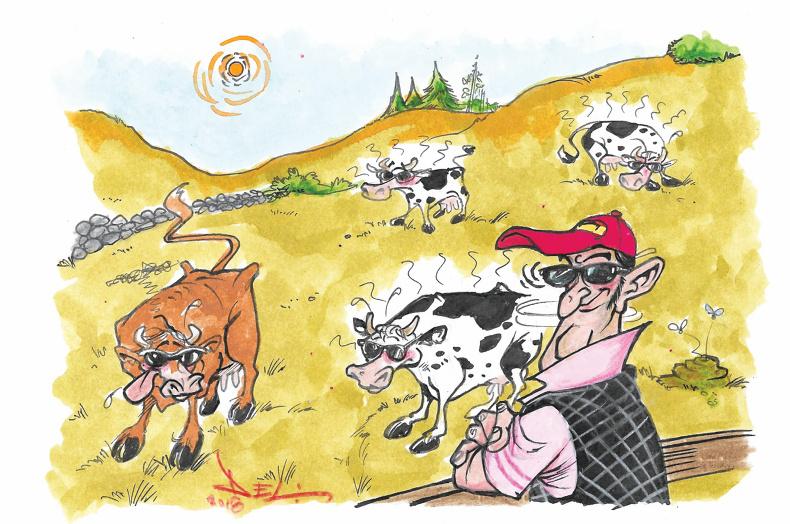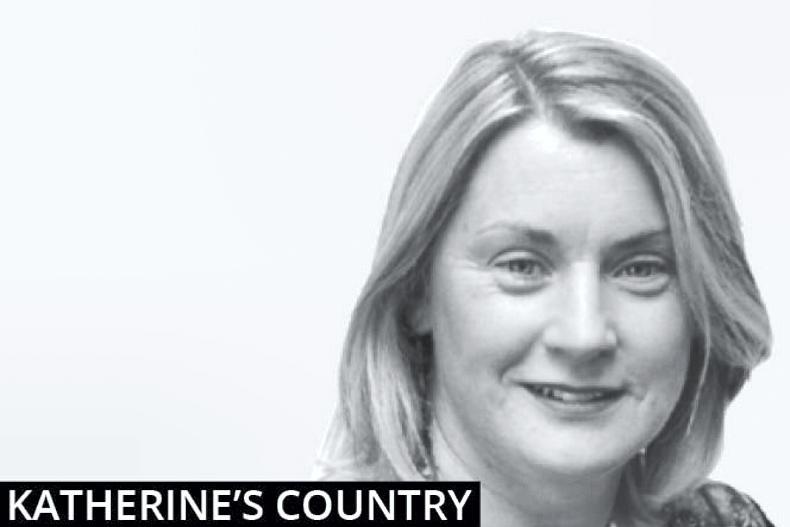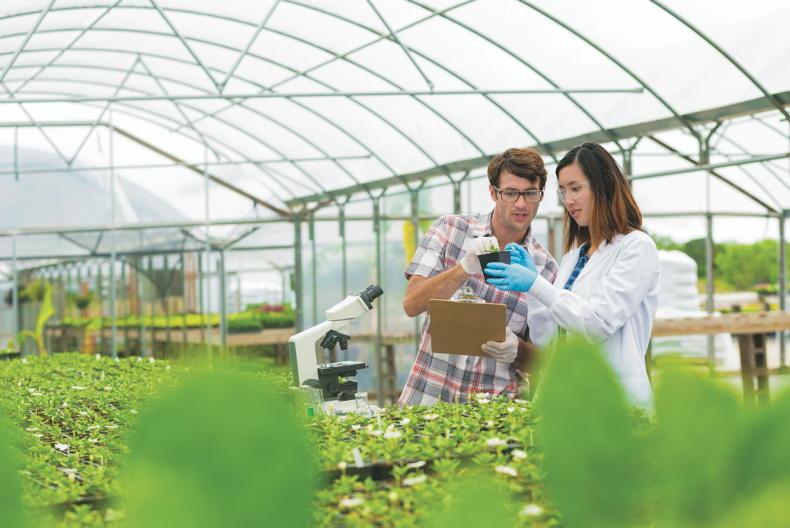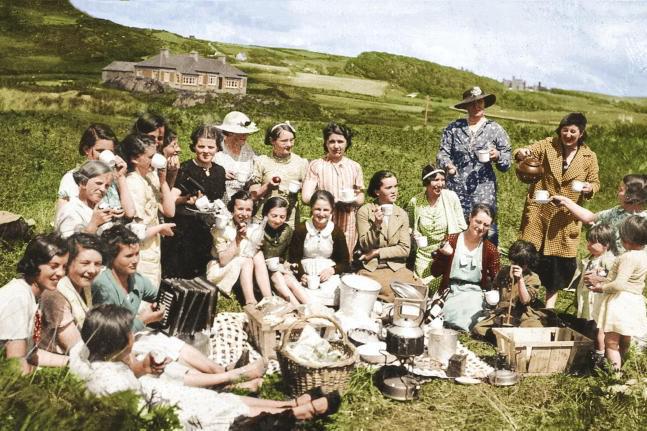Carrigaline Macra members have garnered a name for themselves in organising a successful, annual agricultural conference. This year it was entitled: The opportunities and challenges for the Irish Agri Food Industry. The club aims high with the calibre of speaker, and consequently the lineup adequately provokes and stimulated thought. Its reputation enticed me to drag myself off the comfy couch and head out into the night.
Chatting with one of my younger colleagues in the Irish Farmers Journal, we acknowledged how difficult that can be after a tough year of weather events and price challenges. Finding family time can be difficult for young farmers on a circuit of pursuing information, activism on behalf of fellow farmers and dedication to advancing their careers.
For those of us a bit older, we’re still on the circuit, but energy levels sometimes challenge us when it comes to changing practices to protect the environment and subsequently planet Earth. We must keep our children and grandchildren in our minds.
The issue of our time
Gerry Boyle, director of Teagasc, did not sugar-coat his challenge to young farmers. Tackling climate change was clearly their baby and it could be done if all of the next generation was on board.
Quoting a recent headline that shocked him, he said that “one third of people under the age of 35 do not believe in climate change at all”. He quickly debunked that notion citing evidenced research.
“There is absolutely no doubt that mankind is responsible for climate change. Accept it and move on,” then Gerry spelled it out that as cow numbers increase, so too will the greenhouse gas emissions. The relationship between the two is reality.

Cartoon by Clyde Delaney.
It’s natural for young people to want to grow their businesses. Teagasc has come up with 25 measures to tackle the predicted increase in GHG emissions.
Gerry challenged that each farm has to think about this, the numbers issue and how individual farmers take action on their own farm. He warned that the climate change challenge goes way beyond Brexit, and that there was a huge opportunity for young farmers to own the problem but also to own the solution.
The time for cynicism was gone, according to the director, and solutions that exist only on a spreadsheet must be translated into real options inside the farmgate. This was a hard-hitting address backed up by research evidence.
I felt that Gerry Boyle’s frustration with farmers’ complacency on climate change was absolutely evident. His concern that the spreadsheets were not translating into action worries him.
Targets already agreed for 2020 will not be met and Ireland will be fined. We’ve signed up to a 30% reduction in GHG emissions for the agricultural sector by 2030. This can be achieved by a combination of measures.
Are farmers listening?
The question is, are farmers listening? Methods of farming that are kind to the environment come with a cost, and controlling and reducing GHG needs a change in attitude. The generation of under 35s that Gerry was addressing have the most to lose, as do their children. They just happen to be our children and our grandchildren. There were a fair few of us there too. We have a responsibility to allow young farmers to take action and also a role of leadership to encourage them. I believe that all generations must own the problem and the solution.
Our farm
On our farm with the input of two generations of Tim and Colm, we are well aware of our responsibilities to the environment. Some of the measures that Teagasc has on the list have already been adopted on our farm.
We have a solid focus on EBI which increases profitability and efficiency delivering a reduction in carbon footprint. We have also switched from CAN as a source of nitrogen to stabilized urea. We have extended grazing and changed to low-emission slurry spreading. We have a huge emphasis on animal welfare and we will continue to keep the focus on reducing emissions from our farm.
I have no doubt that under the leadership of Teagasc and science, Irish farmers will have sufficiently played their part in reducing emissions by 2030.
Carrigaline Macra members have garnered a name for themselves in organising a successful, annual agricultural conference. This year it was entitled: The opportunities and challenges for the Irish Agri Food Industry. The club aims high with the calibre of speaker, and consequently the lineup adequately provokes and stimulated thought. Its reputation enticed me to drag myself off the comfy couch and head out into the night.
Chatting with one of my younger colleagues in the Irish Farmers Journal, we acknowledged how difficult that can be after a tough year of weather events and price challenges. Finding family time can be difficult for young farmers on a circuit of pursuing information, activism on behalf of fellow farmers and dedication to advancing their careers.
For those of us a bit older, we’re still on the circuit, but energy levels sometimes challenge us when it comes to changing practices to protect the environment and subsequently planet Earth. We must keep our children and grandchildren in our minds.
The issue of our time
Gerry Boyle, director of Teagasc, did not sugar-coat his challenge to young farmers. Tackling climate change was clearly their baby and it could be done if all of the next generation was on board.
Quoting a recent headline that shocked him, he said that “one third of people under the age of 35 do not believe in climate change at all”. He quickly debunked that notion citing evidenced research.
“There is absolutely no doubt that mankind is responsible for climate change. Accept it and move on,” then Gerry spelled it out that as cow numbers increase, so too will the greenhouse gas emissions. The relationship between the two is reality.

Cartoon by Clyde Delaney.
It’s natural for young people to want to grow their businesses. Teagasc has come up with 25 measures to tackle the predicted increase in GHG emissions.
Gerry challenged that each farm has to think about this, the numbers issue and how individual farmers take action on their own farm. He warned that the climate change challenge goes way beyond Brexit, and that there was a huge opportunity for young farmers to own the problem but also to own the solution.
The time for cynicism was gone, according to the director, and solutions that exist only on a spreadsheet must be translated into real options inside the farmgate. This was a hard-hitting address backed up by research evidence.
I felt that Gerry Boyle’s frustration with farmers’ complacency on climate change was absolutely evident. His concern that the spreadsheets were not translating into action worries him.
Targets already agreed for 2020 will not be met and Ireland will be fined. We’ve signed up to a 30% reduction in GHG emissions for the agricultural sector by 2030. This can be achieved by a combination of measures.
Are farmers listening?
The question is, are farmers listening? Methods of farming that are kind to the environment come with a cost, and controlling and reducing GHG needs a change in attitude. The generation of under 35s that Gerry was addressing have the most to lose, as do their children. They just happen to be our children and our grandchildren. There were a fair few of us there too. We have a responsibility to allow young farmers to take action and also a role of leadership to encourage them. I believe that all generations must own the problem and the solution.
Our farm
On our farm with the input of two generations of Tim and Colm, we are well aware of our responsibilities to the environment. Some of the measures that Teagasc has on the list have already been adopted on our farm.
We have a solid focus on EBI which increases profitability and efficiency delivering a reduction in carbon footprint. We have also switched from CAN as a source of nitrogen to stabilized urea. We have extended grazing and changed to low-emission slurry spreading. We have a huge emphasis on animal welfare and we will continue to keep the focus on reducing emissions from our farm.
I have no doubt that under the leadership of Teagasc and science, Irish farmers will have sufficiently played their part in reducing emissions by 2030.










SHARING OPTIONS